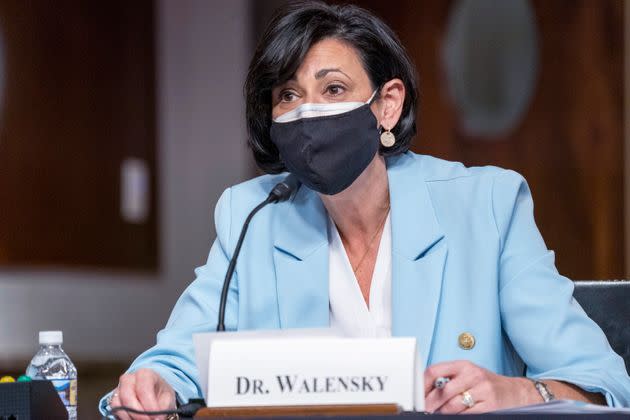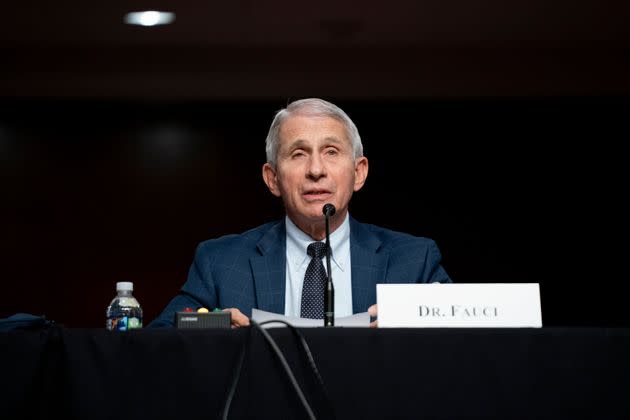CDC Stands By Mask Guidance As Fauci Says ‘Full-Blown Pandemic Phase' Nearly Over
The U.S. may soon exit “the full-blown pandemic phase” of COVID-19, Dr. Anthony Fauci said Tuesday. But cases still remain too high for the Centers for Disease Control and Prevention to recommend changing its guidance on wearing face masks, according to the agency’s director.
CDC Director Dr. Rochelle Walensky, speaking in a separate interview Tuesday, said she’s “cautiously optimistic” about the nation’s current trajectory, but that the agency wouldn’t alter its guidance until deaths and case numbers dropped.
“We have and continue to recommend masking in areas of high and substantial transmission ― that is essentially everywhere in the country in public indoor settings,” she said in an interview with Maryland radio station WYPR.
“Things are going in the right direction, and with that we will continue to evaluate the science. But right now we still have about 290,000 cases every single day and our hospitalization rates now are higher than they even were at the peak of our delta surge,” Walensky added.

Cases have been steadily dropping since a seven-day average of more than 800,000 in mid-January, but fatalities have been rising. There were more than 3,000 deaths reported on Monday from the virus, and the seven-day moving average is 2,341, according to the CDC.
The majority of those dying are older, with nearly half of deaths in January having been those 75 and older. For comparison, this age group made up about one-third of deaths in September, according to data compiled by The Washington Post.
Walensky and other health experts have previously said that those hospitalized for COVID-19 are disproportionately people who are not fully vaccinated or who haven’t received a booster shot. One epidemiologist told the Post that seniors dying from the coronavirus today were likely fully vaccinated during the prior delta surge but that they didn’t get a booster ahead of the omicron surge.
“That vaccination back in February isn’t as effective now if you aren’t boosted,” Jason Salemi, an epidemiologist at the University of South Florida College of Public Health, told the Post.

Fauci offered a bit of an optimistic projection in his interview. He said he doesn’t think the virus will be eradicated but that it will soon be more manageable in the U.S., with restrictions likely ending sometime this year.
“As we get out of the full-blown pandemic phase of COVID-19, which we are certainly heading out of, these decisions will increasingly be made on a local level rather than centrally decided or mandated. There will also be more people making their own decisions on how they want to deal with the virus,” he told the Financial Times.
He also shared his belief that not all Americans will need to get regular COVID-19 vaccine boosters in the future.
“It will depend on who you are,” he said. “But if you are a normal, healthy, 30-year-old person with no underlying conditions, you might need a booster only every four or five years.”
This article originally appeared on HuffPost and has been updated.



